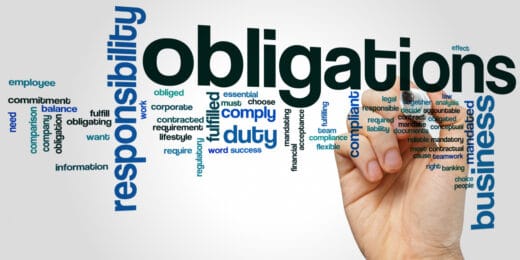Companies limited by guarantee have the same filing obligations as companies limited by shares. Every year, they must deliver a confirmation statement and accounts to Companies House, in addition to filing accounts and tax returns with HMRC. Any changes to the company’s details must also be reported to Companies House.
This post provides a brief overview of these filing obligations, including how and when to deliver this information to Companies House and HMRC.
Key Takeaways
- File your confirmation statement every 12 months to keep your company details up to date with Companies House.
- Submit annual accounts within 9 months of your accounting reference date to comply with statutory obligations.
- Report any company changes to Companies House within 14 days to maintain accurate public records.
1. Confirmation statement
The confirmation statement (Companies House form CS01) is a simple document that must be completed and filed with Companies House every 12 months. It confirms that the information held at Companies House is up to date, including:
- the company name and registered office address
- Standard Industrial Classification codes (SIC codes)
- details of company officers (directors and the company secretary)
- information about people with significant control (PSCs)
- the company’s registered email address
Suppose nothing has changed since the date the company was registered or the last confirmation statement date. In that case, you just need to check the details held at Companies House, confirm that they are correct, and file the confirmation statement online.
If your company information is not correct or up to date
You can update your SIC code(s) and guarantor information on the confirmation statement.
However, if you need to change the registered office address or information about officers or PSCs, you will need to report these changes separately, either beforehand or at the same time as filing your statement.
Confirmation statement filing deadline
A confirmation statement should be filed online at the end of every 12-month review period. The review period begins on the:
- the company’s date of incorporation or
- the statement date of the last confirmation statement
The confirmation statement filing deadline is 14 days after the end of the review period.
2. Annual accounts for Companies House
Companies limited by guarantee must prepare annual accounts (also known as statutory accounts) for Companies House every year.
The purpose of accounts is to summarise a company’s financial activities and performance throughout the previous financial year.
The obligation to prepare accounts for Companies House applies to all companies, whether active or dormant.
However, dormant companies can submit dormant accounts, and smaller companies can prepare abridged (simplified) accounts rather than full accounts.
Annual accounts should be delivered to Companies House online or by post. The filing deadline is 9 months after the company’s accounting reference date (ARD), or 21 months after the date of company registration if you’re filing your first accounts.
3. Reporting company changes
Companies House maintains a public register with information about all companies incorporated in the UK. To ensure this online database is kept up to date, you must tell Companies House about the following changes made to your limited by guarantee company:
- company name
- registered office address
- details of directors and company secretaries
- accounting reference date (ARD)
- details of people with significant control
- using a Single Alternative Inspection Location (SAIL address)
- location of statutory company registers
- articles of association
- registered email address
These changes must be reported online or by post within 14 days.
If you need to change your SIC code or update information about the company’s guarantors, you can tell Companies House about these when you file your next confirmation statement.
4. Accounts and Company Tax Return for HMRC
Companies limited by guarantee must file full (statutory) accounts with HRMC as part of their annual Company Tax Return.
The tax return calculates the company’s profit or loss during the most recent accounting period and the Corporation Tax (if any) it owes.
The deadline for filing a tax return is 12 months after the end of the company’s accounting period for Corporation Tax.
If your company is dormant for Corporation Tax, you will not have to prepare Company Tax Returns unless you receive a notice from HMRC.
5. VAT Returns, PAYE reports, and Self Assessment tax returns
Some limited by guarantee companies may have additional filing obligations for HMRC if they are registered for VAT or pay employees (including directors) through Pay As You Earn (PAYE).
If your company is registered for VAT, you will need to submit online VAT Returns every three months. This quarterly period is known as your VAT accounting period. The filing deadline for VAT Returns is one month and seven days after the end of each accounting period.
If your company is registered as an employer and you operate PAYE through your payroll, you will need to report employees’ pay and deductions to HMRC online, on or before every payday.
Guarantors and directors may also have to register for Self Assessment and file annual Self Assessment tax returns online if they receive any untaxed earnings from the company. ‘Untaxed earnings’ means any income that is not taxed at source through PAYE.
So there you have it…
We’ve discussed the primary filing obligations of companies limited by guarantee registered in the UK. This includes confirmation statements, annual accounts, tax returns, and reporting changes to your company’s registered details.
We hope that this information has illuminated your responsibilities when running a limited by guarantee company. However, if you need more guidance or have any questions, please contact our Company Formation Team or leave a comment below.
If you would like to register a limited company, visit Rapid Formations’ homepage to get started.
Please note that the information provided in this article is for general informational purposes only and does not constitute legal, tax, or professional advice. While our aim is that the content is accurate and up to date, it should not be relied upon as a substitute for tailored advice from qualified professionals. We strongly recommend that you seek independent legal and tax advice specific to your circumstances before acting on any information contained in this article. We accept no responsibility or liability for any loss or damage that may result from your reliance on the information provided in this article. Use of the information contained in this article is entirely at your own risk.












Join The Discussion